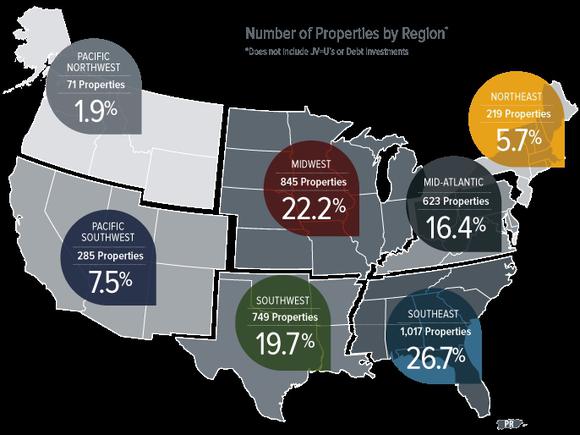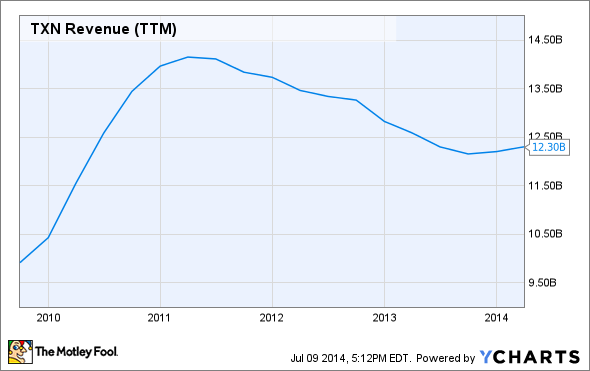Filed under: Investing
You can have ice cream for dessert tonight, but you're not having a Crumbs Cupcake. The struggling 600-calorie (yep, that much) chain baker officially shut all stores on Tuesday to focus on options such as bankruptcy. Crumbs shares were officially de-listed on the Nasdaq stock exchange last week, but the stock fell over 73% to just pennies after this announcement.
Bright blue frosting, artificial cake flavor, and sprinkles are fun, but they're not scalable. Cupcake enthusiasm prompted by Sex and the City (the MarketSnacks team prefers Sprinkles Cupcakes ... obvi) was as much a trend as Carrie's purses. And with over-expansion to over 50 stores in 10 states, Crumbs posted a nearly $20 million loss last year.
For sweet-toothed historians out there, the cupcake chain that began in 2003 on Manhattan's Upper West Side began tasting bad immediately after its June 2011 IPO. A month later, sales had fallen 6%, and by September, the stock that had started above $13 was below $4 per share. Then the CEO resigned.
The takeaway is that Crumbs tried everything to save itself. It knocked off the "Cronut" with a croissant-doughnut-cupcake hybrid and offered (shockingly) gluten-free options. It even finally diversified product offerings with mediocre coffee. Now all you probably care about is who will bid $250 on eBay to buy the last Crumbs cupcake ever made.
2. Alcoa starts second-quarter earnings season with a bang
Like the dinner bell for to a hungry hound, the earnings report from Alcoa means the beginning of a glorious thing -- earnings season. The former Dow Jones Industrial Index member (till it got kicked out in ignominy like Brazil for losing) announced its second-quarter earnings on Tuesday with a refreshing helping of profits. Cost-cutting and selling more specialized alloys paid off for the American steel company, as profits jumped from negative-$119 million to positive-$138 million.
Lawsuits will get to you. But so does pre-lawyering up, which is what has destroyed Alcoa's profits the past three quarters. It's been on a cost-cutting binge and fired lots of people, which cost the company huge "restructuring costs" (paying people severance and pensions and whatnot so they don't sue), and a foreign subsidiary got the real thing with a major lawsuit payout. But that pain is all over, and now it's about profits (cue the blue steel look).
The takeaway is that this is what a restructuring is supposed to look like. When demand for steel declined and supply blew up, steel prices dropped and Alcoa suffered (more than just the tears of getting ousted from the prestigious 30-member Dow club last year). The stock price jumped 1.3% in after-market trading. Now ice up and get ready for bigger names to report later this week.
3. Small-biz "optimism" surprisingly slows
We love summer, but apparently the neighborhood bodega doesn't. That's because according to the poll by the National Federation of Independent Businesses, optimism among small business owners surprisingly dropped last month after three straight monthly gains.
The takeaway is that mom-'n'-pop shops are worried about whether the economic recovery can get back on track after winter weather slowed things down in the first quarter. But despite the "Debbie Downer" attitude, analysts point out that a growing number of small businesses are hiring.
As originally published on MarketSnacks.com
Leaked: Apple's next smart device (warning -- it may shock you)
Apple recently recruited a secret-development "dream team" to guarantee that its newest smart device was kept hidden from the public for as long as possible. But the secret is out, and some early viewers are even claiming that its everyday impact could trump the iPod, iPhone, and the iPad. In fact, ABI Research predicts that 485 million of these devices will be sold per year. But one small company makes this gadget possible. And its stock price has nearly unlimited room to run for early in-the-know investors. To be one of them, and to see Apple's newest smart gizmo, just click here!
The article Crumbs Cupcakes Crumbles, Alcoa Kicks Off Earnings Season, and Small-Biz Optimism Dips originally appeared on Fool.com.
Jack Kramer and Nick Martell have no position in any stocks mentioned. The Motley Fool recommends and owns shares of Apple and eBay. Try any of our Foolish newsletter services free for 30 days. We Fools don't all hold the same opinions, but we all believe that considering a diverse range of insights makes us better investors. The Motley Fool has a disclosure policy.Copyright © 1995 - 2014 The Motley Fool, LLC. All rights reserved. The Motley Fool has a disclosure policy.
Read | Permalink | Email this | Linking Blogs | Comments





























